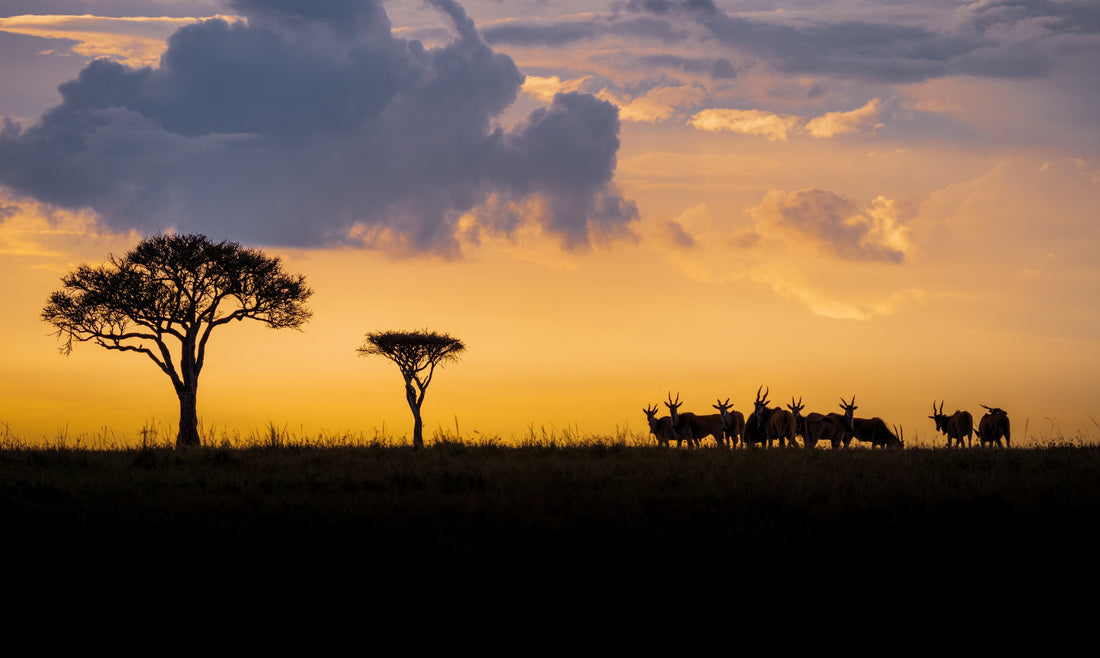As with many things, I became interested in specialty coffee through cinema, specifically the movie Out of Africa (1985) starring Meryl Streep and Robert Redford.
This movie brings to life one of my favorite stories about a free-spirited woman who yearns to escape from the stifling expectations of old Danish society. Her name was Karen Blixen and she married a baron out of convenience so they could settle and start an enterprise in Africa together, something I suppose she couldn't do alone at the time, although her courage makes me wonder.
Karen traded companionship for access to her money, which the baron took advantage of regularly. He made big decisions without her, such as growing coffee on the slopes of the Ngong Hills instead of raising cattle as they had planned to do prior to getting married. She embraced it though, as she did the many wild turns in her life.
As Karen settles into life in the lush foothills of Kenya, she befriends a big game hunter named Denys Finch-Hatton who introduces her to the majestic beauty of a wild Africa unbridled by western interference. Their relationship deepens into romance as Karen's marriage falls apart, and Denys moves into her house, using it as a home base for his safari expedition business. They read books and hunt together, and eventually Denys learns how to fly, showing Karen Africa from a bird's eye view from his ill-fated Gipsy Moth.
(I'm so wrapped up in the fantastic love story here, I'm forgetting about the coffee!)
As Denys comes and goes, and Karen waits lovelorn for him to come back, she sinks deeper and deeper into her coffee business. She works alongside the Kikuyu people laboring on her farm to process coffee fruit into beans. One of my favorite scenes in the movie depicts some of this - coffee berries being plucked off of bushes and dropped into the pulping machine, beans being shifted and dried outdoors in raised beds, and the washing in between.
I knew nothing technical about this when I first watched the movie. What struck me more than anything was the redemptive power of the craft of coffee, and how the cycles of Karen's business both reflected and contained the turbulence in her heart. It was a creative vessel for her in her loneliest moments, this lamplit tumbling drum - something she could count on in periods of darkness.
This is something I know about business having grown up in one - on good days and bad, business is business. It's always there (if you're lucky), and goes on even when you feel like you can't anymore. My family's business pulled us up through life like strings rightly lacing up a shoe even when we were kicking and screaming.
I saw that old business call to my father like Karen's called to her, and even though Los Compas is in its infancy and I've barely done or sold anything, this nascent business calls to me as I close and open my eyes each day. This nagging sense of ownership and belonging is something I hope to expose young people in my community to through teaching them about business, but I digress.
I started researching coffee as a hobby during the pandemic after watching Out of Africa for perhaps the hundredth time. I read The World Atlas of Coffee by James Hoffman front to back during an unusual spell of heavy rain in March of 2020 when the world shut down and polluted rivers cleared.
Learning about the rich history and origin of coffee made me feel connected to a simpler, ancient world of lush canopies concealed in mist. The nutty and chocolatey aromas of small shipments of coffee beans I roasted on my stovetop enveloped my senses. I became entranced in the meditation of having to constantly agitate my beans with a whisk and pay close attention to changes in sound, smell, and color. The focus brought me closer to a stillness I realized I needed.
This ritual carried me through many months of lockdown, and I realize how lucky I am to have had a safe place to live, food to eat, and a passion to discover during a time that was so treacherous for so many around the world.
Where was I going with all of this?
I suppose it's merely a reflection of how the seed of Los Compas was planted: from the generative love story of a tenacious and enterprising woman trying to leave her gentle mark on a place.

